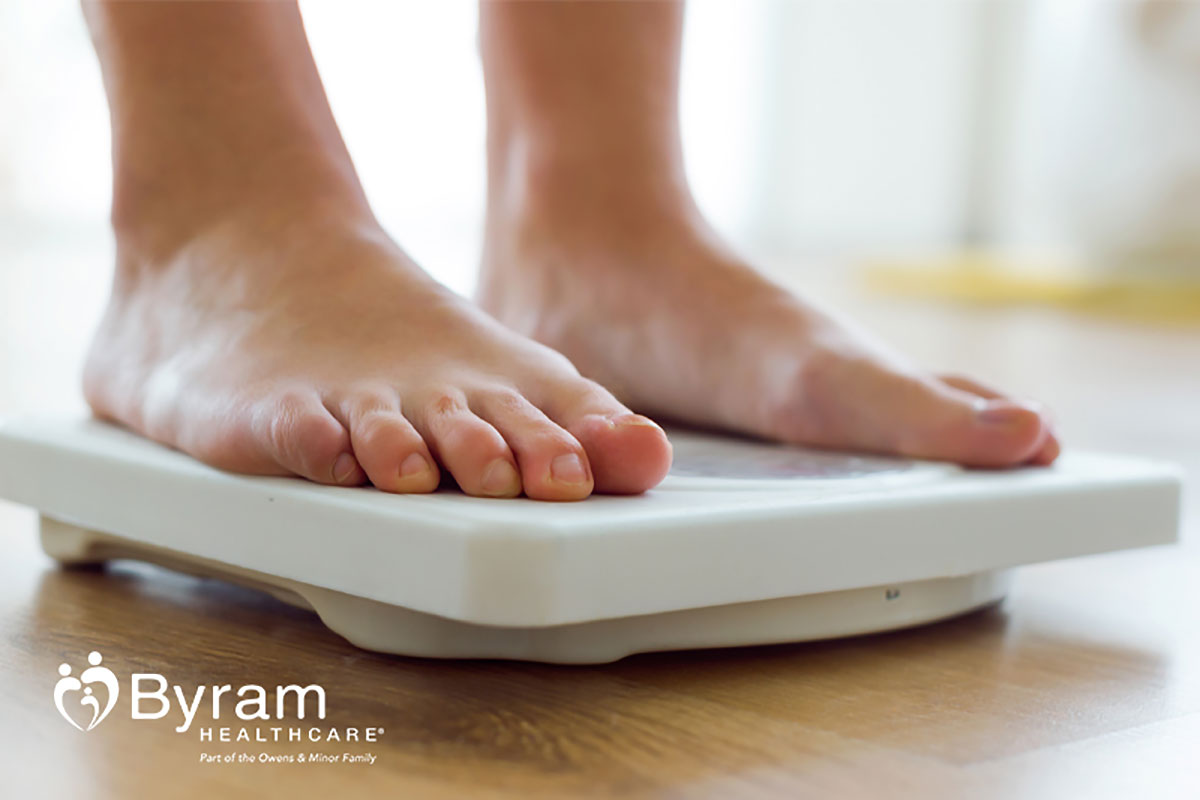10 Most Common Early Signs of Pregnancy
When you and your partner are trying to conceive, one of the most exciting moments are those first few signs of success. It gives you a glimpse into the future and let’s you know it’s time to start planning. However, many women differ in the signs of early pregnancy and some women won’t know until they’ve missed a period and taken a test.
Other women will start to experience early signs of pregnancy as early one week after conception! If you’re one of those women, it’s important to know what to look for. That’s why we’ve put together the 10 most common early signs of pregnancy. Enjoy!
1. Mild Cramping and Spotting
Cramping is confusing because it is one of the most common accompaniments of getting your period, but the two are not the same. Cramping during your period is a sign that your uterus is getting ready to shed the lining while cramping from pregnancy is caused by increased blood flow to your uterus.
If cramping is severe, for either your period or your pregnancy, contact your doctor and try to relax with a warm compress or some warm herbal tea.
Similarly, spotting often occurs due to a phenomenon called implantation bleeding. Implantation bleeding is when blood is present only when you wipe, but may vary in color and be pink, red, or brown. Implantation bleeding commonly occurs up until the fourth week from conception, but if you have any reason for concern schedule a visit with your OBGYN or primary care physician.
2. Breast Soreness, Aching, and Swelling
One of the most physically obvious early signs of pregnancy includes breast soreness, aching, and swelling. If you start feeling like your breasts hurt or notice an increase in size, there is a chance that you’re pregnant. However, breast soreness is also a common symptom of regular menstrual cycles so don’t jump to conclusions too quickly.
You know your body better than anyone else and if breast soreness accompanies your monthly cycle, don’t immediately assume you’re pregnant. One key difference is that soreness accompanying your monthly cycle will go away within a day or so while soreness in pregnancy tends to stick around for longer.
Pregnancy produces breast soreness and tenderness because of the spike in the hormones estrogen and progesterone—both of which increase the blood flow to your breasts. If you experience breast soreness along with other signs of pregnancy, it never hurts to take a test.
3. Darkening Areolas
Another change that accompanies your breasts is the darkening of your areolas—the area of skin that surrounds your nipples. In as little as one to two weeks after conception, your areolas will appear darker and sometimes even larger.
You’ll also notice an increase in appearance in the veins in your breasts and more Montgomery tubercles—the little bumps that surround your areolas. All of these changes are due to spike in pregnancy hormones, like hCG, that your body starts producing to aid in a healthy pregnancy.
4. Fatigue
No body likes feeling fatigued. It causes you to lose motivation and brings an overall feeling of complete and utter exhaustion. Yet fatigue is a huge indication of early pregnancy. Symptoms of fatigue associated with pregnancy are more extreme than the fatigue you feel from a long day at work and you’ll often be fighting to keep your eyes open.
Fatigue starts early, around the fourth or fifth week, and for some mothers, lasts until delivery. While this will be difficult, remember that your body is using a ton of extra energy to help make sure your baby has a healthy development and is supplied with all the nutrients they need.
Instead of trying to push through, embrace the fatigue and take naps throughout the day. Once the baby comes, doing so will be much more difficult.
5. General Nausea
Nausea, with or without vomiting, is one of the most common signs of early pregnancy. Commonly referred to as morning sickness, it is often not restricted to the “morning” and instead occurs throughout the day or even into the night.
This tends to subside after the first trimester, but there are some women who unfortunately experience nausea throughout their entire pregnancy. If you are one of these women, talk to your doctor about some pregnancy safe anti-nausea remedies. Nausea throughout your pregnancy is also one of the main reasons you will have such strong aversions to certain foods.
6. Frequent Urination
A lot of women think that frequent urination only comes once their baby’s grow and start pushing against their bladders. Unbeknownst to many, an increase in urination is actually a very early sign of pregnancy and begins in some mothers as early as two weeks after conception. Most, however, experience this change around six to eight weeks after conception.
HCG, not your baby’s growing size, is the real culprit of increased trips to the bathroom in early pregnancy. Keep in mind that even though you may be urinating more frequently, it’s still important to stay well hydrated throughout your pregnancy—as inconvenient as that will be.
7. Bloating
Bloat is arguably one of woman’s worst enemies, but when you’re trying to get pregnant it’s a promising sign. Thanks to the increase in progesterone during pregnancy, your body’s gastrointestinal tract works slower to improve nutritional absorption. Embrace the bloat! It’s working to help deliver essential nutrients to your growing baby.
8. High Basal Body Temperature
For women who are actively trying to conceive, the importance of your basal (or waking) body temperature is well known. Charting your temperature daily helps determine your ovulation schedule, increasing the likelihood of conception. A higher than normal reading that doesn’t decrease after ovulation is an early sign of pregnancy. For most women, this symptom goes unnoticed, but for others, it is a good indication that you’re pregnant.
Similarly to many of the early signs of pregnancy, this increase in basal body temperature is due to the pregnancy hormones that start coursing through your body.
9. Food Cravings
While a lot of people associate food cravings and aversions with the later trimesters, they actually occur most often during the first trimester when your body is changing the most. This is likely because your body is trying to tell you what it needs, but is often mistaken for weird food urges. For instance, if you crave a pickle, your body needs salt… not a pickle. You just make your own associates and thus, the weird cravings emerge.
Instead of consuming empty calories to fulfill your cravings, try and satisfy them with healthy alternatives. But don’t restrict yourself too much! A snack here and there won’t harm your baby’s development.
10. Missed Period
Finally, the most telltale sign of knowing your pregnant is because of a missed period. While there are other reasons that you miss periods, pregnancy plays a pretty significant role in it. If you miss your period, take a pregnancy test to be sure. Head to your local drug store and find a good quality test that will detect your hCG levels accurately.
Alternative Causes for Common Pregnancy Symptoms
One thing to remember is that there is no way to know whether or not these symptoms mean you’re pregnant unless you take a pregnancy test. As women, our bodies go through a lot of stress and most of these early signs of pregnancy are also explained by other causes.
For example, a missed period doesn’t exclusively mean you’re pregnant. There are a number of other plausible explanations, such as:

- Weight gain or weight loss
- Overall fatigue
- Changes in exercise
- Hormonal imbalances
- Increased levels of stress
- Birth control
- Breastfeeding
- Various illnesses
Additionally, nausea, as well all know, is caused by a number of things other than pregnancy. Anxiety, stress, food poisoning, and general stomach problems are often the culprit. Birth control causes tender breasts and high levels of fatigue cause your body to act irregularly.
If you miss your period and aren’t pregnant, but are trying to conceive, talk to your doctor.
Conclusion
If you have these early signs of pregnancy and come back with a positive pregnancy chance, congratulations! Schedule a visit with your doctor to be 100% sure and to create a plan, then you can start preparing for the amazing joys – and changes – that parenthood has to offer. One of the best ways you can start to prepare is by stocking up on all your baby supply needs. While this often gets expensive, the Affordable Care Act gives expectant mothers a break. This act means that you are eligible to receive an electric breast pump covered by your insurance provider! Visit Byram Healthcare today to browse our wide selection of both manual and electric pumps.
If you want to share a story about the early signs of pregnancy and how you first found out you were expecting, head over to our Facebook page and leave a comment! We always love hearing our readers’ personal experiences, comments, tips, and more!






